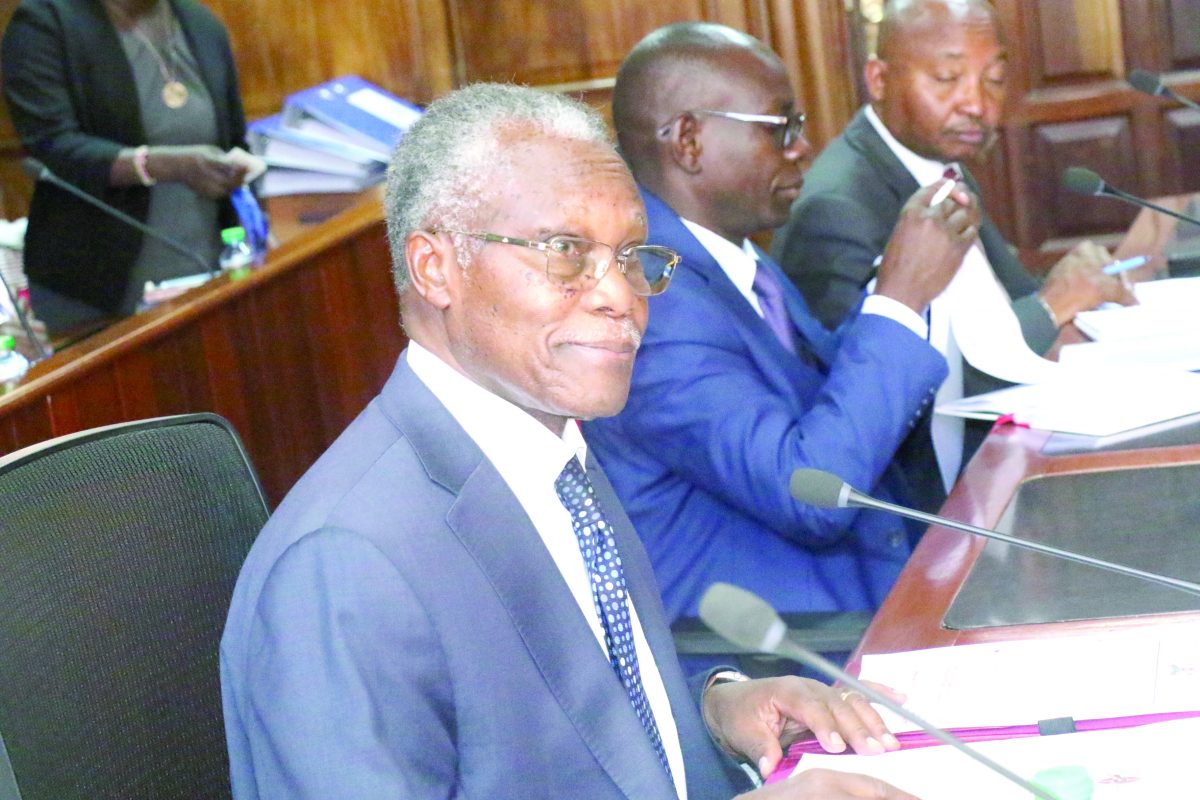Cohesion team set to conduct ethnic staff audits in counties
By Rawlings, March 6, 2023The National Cohesion and Integration Commission (NCIC) is set to conduct ethnic audit of staff across the 47 counties, a move that will put governors on the spotlight.
The commission has also vowed to conduct a similar exercise in all public universities and establish if the higher learning institutions have employed the face of Kenya.
While appearing before the Senate Cohesion committee chaired by Mohammed Chute (Marsabit), NCIC revealed that it had commenced the audit on the ethnic composition of the top cadre personnel hired by the new county chiefs following the August 9, 2022 general election.
“They are supposed to give us the full details of who is employed on what position and which ethnic community they represent,” said NCIC boss Samuel Kobia.
Kobia told the committee that the cohesion commission has given the county bosses until the end of the month to provide staff details to enable them conclude the audit.
This after most of them failed to meet the commission’s deadline of end of January to provide the crucial information.
“In fact, we had given governors until end of January but most of them have not responded,” he said.
The County chiefs have been setting up their governments with several appointments witnessed in the past five months.
Already the Governors have appointed their cabinets – Committee Executive (CEEs), county secretaries and attorneys –, chief officers, directors and advisors.
However, there have been concerns that some of the governors have filled the positions with people from their own ethnicity communities and failed to adhere to the law.
Section 7 of the NCIC Act states that ‘all public establishments shall seek to represent the diversity of the people of Kenya in the employment of staff and that no public establishment shall have more than one third of its staff from the same ethnic community.
Equally, Section 65(1)(e) of the County Governments Act, 2012 stipulates that at least 30 percent of the vacant posts at entry level are filled by candidates who are not from the dominant ethnic community in the county.
But many counties governments have failed to adhere to the legal requirement with audit reports indicating that some counties have as high as 90 percent of their staff hailing from one ethnic community.
Overturning appointments
For instance, in places like North Eastern where there is majorly one ethnic community – Somali – the county chiefs are required to disclose clan where their staff come from.
“If you take Mandera for example, some of them will say they are Murule or some are not represented because the governor comes from a particular clan,” said Kobia.
“The same thing with Meru, we need to know how many Tiganias, Imenti and so on are employed in the county government,” the chairman added.
The move has attracted legal action, with court overturning appointments in some areas.
In December last year, Employment and Labour court overturned appointment of ten CECS by Nakuru governor Susan Kihika over ethnic imbalance.
Justice Hellen Wasilwa ruled that Kihika must start a new process for choosing CECs because her prior selection was illegal and skewed.
Nairobi Governor Johnson Sakaja was also forced to wait longer for his CEC nominees to be vetted by the county assembly after the High Court temporarily stopped exercise following a case challenging ethnic composition.
A report dubbed ‘Ethnic and Diversity Audit of the County Public Service’ released by NCIC in 2016 showed that more than 30 Counties had breached the law on employment.
The report showed that Bomet and Nyamira counties employed 97.9 percent of Kalenjins and Kisiis respectively.
Kirinyaga County followed, closely employing 97.8 percent Kikuyus, Elgeyo Marakwet 97.6 percent Kalenjins, Kisii 97.5 percent Kisii’s and Tharaka Nithi 95.7 percent Tharakas while in Baringo, 84 percent of the employees come from the dominant Kalenjin community.
